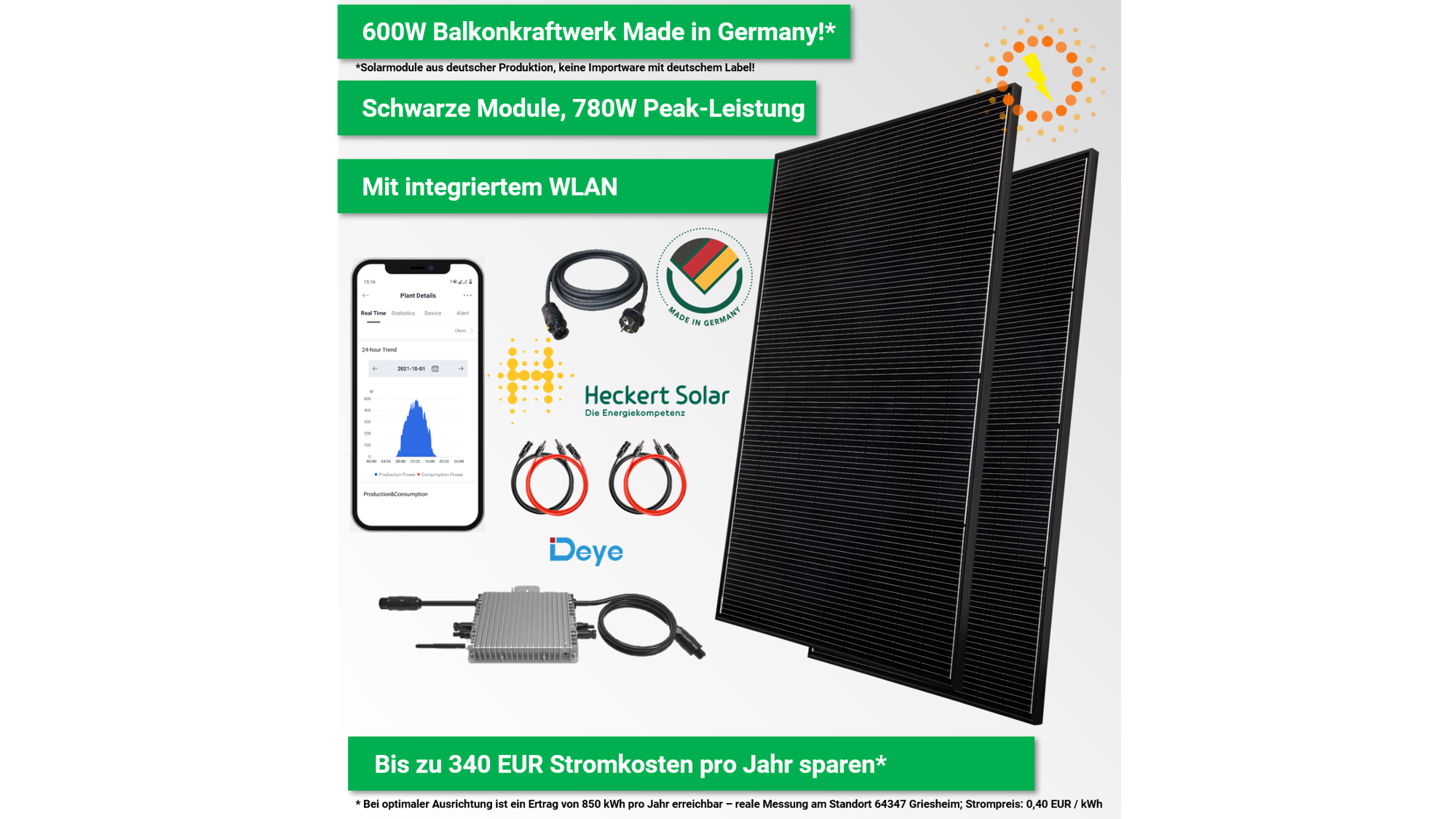Solar power is an environmental friendly source of energy. With the increasing electricity cost, balkonkraftwerk 600w mini power is considered as the best alternative. It does not only lessen your monthly electric bill but it helps reduce greenhouse gas emissions generated by your household natural gas usage which contributes to the devastation of our environment. However, there are people who are still uncertain if solar power is the right choice for their homes because of the proliferating myths about solar electricity. These myths have created misconceptions and confusions about solar power. Here are few myths about solar power that needs to be clarified.
A lot of people believe that solar panels only function in areas with abundant sunshine. Solar panels work on light from the sun and not heat. Yes, it is true that sunny days are great benefit in gathering energy from the sun but what you only need is plenty of UV light. It is the UV rays that photovoltaic cells need to convert to alter the energy fro the sun to electricity. Solar power can function even in the cloudiest places. Contrary to popular beliefs, the solar panels work fine on drizzly days. A very good example is Germany, which have very few sunny days, although they are able to generate only a quarter to half the usual output of electricity they are still producing even when they have overcast or rainy conditions. Germany is not the ideal site for collecting the sun’s ray but today they are known as the leader in solar energy.
Undoubtedly, solar power is expensive. The technology and installation are both costly. And this fact discourages many homeowners to switch solar energy. However, our need for reliable and clean energy has inspired governments around the world to offer incentives to cover a portion of those costs and to encourage innovation that will bring those costs down. Today, solar energy Installations are more affordable than they have ever been. Solar power rebates can offer some significant advantages here, and can reduce the cost of your solar system by an immense amount. In switching to Solar you will pay a fee for your Solar Panels and installation, however once these are paid in full, the solar power that your system harnesses is free for you to use.
Bear in mind that solar energy is a clean and a pro- environment technology. It does not pollute the environment, do not create noise and most importantly, no clean up while power sources that most people are using today including natural gas, coal and nuclear are not. Government imposes tax on the negative externalities of non-renewable (source of traditional energy) sources of energy. In case of power generation, the tax imposed for polluting the environment is added to the price of electricity. If you will use solar energy you will cut your expenses on paying that tax intended for clean ups and you will also help the community save the environment. While in using solar energy you get subsidies from the government.
People believe that they will afford buying or installing solar panels by waiting for the technology cost to drop. But come to think of it, if the technology cost of solar panel system will reduce overtime it is also possible that government rebates will be cut also. In other words, waiting for the solar panel system to get cheaper will not save you much money. In the production of solar panel systems 25 years ago, the small amount of industrial waste in the manufacturing process is offset by the energy it saves. Solar manufacturing is a very green process and help people save money.
Although solar photovoltaic industry is not 100% environment-friendly, the emissions of a photovoltaic system are obviously less than with non-renewable sources of energy. The only factor which can possibly cause pollution in the fabrication of solar panels is the semiconductor processing which involves the use of chemical and toxic materials.
Photovoltaic systems produce no green house gases. As the consumption PV electricity increase, the use of traditional fuels is offset, as a result it decreases the emission generated by traditional fossil fuels. Emission rate can be negative if the use of photovoltaic electricity increase adequately.
